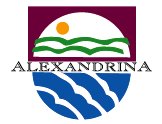Alexandrina Council
|
Alexandrina Council South Australia |
|||||||||||||
|---|---|---|---|---|---|---|---|---|---|---|---|---|---|

Location of Alexandrina Council in Australia
|
|||||||||||||
| Coordinates | 35°23′09″S 138°49′24″E / 35.3857°S 138.8232°ECoordinates: 35°23′09″S 138°49′24″E / 35.3857°S 138.8232°E | ||||||||||||
| Population | 25,499 (2015 est) | ||||||||||||
| • Density | 13.957/km2 (36.148/sq mi) | ||||||||||||
| Established | 1997 | ||||||||||||
| Area | 1,827 km2 (705.4 sq mi) | ||||||||||||
| Mayor | Keith Parkes | ||||||||||||
| Council seat | Goolwa | ||||||||||||
| Region | Fleurieu and Kangaroo Island | ||||||||||||
| State electorate(s) | Finniss, Hammond | ||||||||||||
| Federal Division(s) | Barker, Mayo | ||||||||||||
 |
|||||||||||||
| Website | Alexandrina Council | ||||||||||||
|
|||||||||||||
Alexandrina Council is a local government area in the Fleurieu and Kangaroo Island region of South Australia. The Alexandrina Council was formed on 1 July 1997 by the amalgamation of the District Council of Port Elliot and Goolwa, the District Council of Strathalbyn and a portion of the District Council of Willunga. The council is divided into five wards: Nangkita Kuitpo, Angas Bremer, Port Elliot Middleton, Strathalbyn and Goolwa Hindmarsh Island.
The district relies on a diverse range of industries including agriculture, fishing, forestry, viticulture and tourism to supply its economy. Many of the towns encompassed in the council are popular tourist towns not far from Adelaide.
The economy of the Alexandrina Council is very diverse, which may be attributed to the great diversity of landscapes within its boundaries, allowing for diverse rural, fishing and tourism industries to occur. The largest part of the economy comes from agriculture, with a wide variety of farming practices including dairy, beef and sheep farming, with areas around Goolwa and Mount Compass prominent in the dairy industry. A number of crops including cereals, as well as lucerne are planted in the district. Langhorne Creek and Currency Creek are well known for their viticulture, producing high quality Sauvignon blanc, Cabernet Sauvignon, Merlot, Shiraz and Chardonnay. In the Kuitpo region, forestry is prominent, with large tracts of pine present.
The district borders two bodies of water,Encounter Bay and Lake Alexandrina, which are commercially exploited for a variety of fish and crustaceans. The coast produce shark, mulloway and Australian salmon, as well as huge numbers of Goolwa cockles which are exported all over South Australia. Commercial fishing above the locks has become highly regulated to conserve native fish species but golden perch and Murray cod are still caught, and a number of operators have found markets for the invasive European carp.
...
Wikipedia
